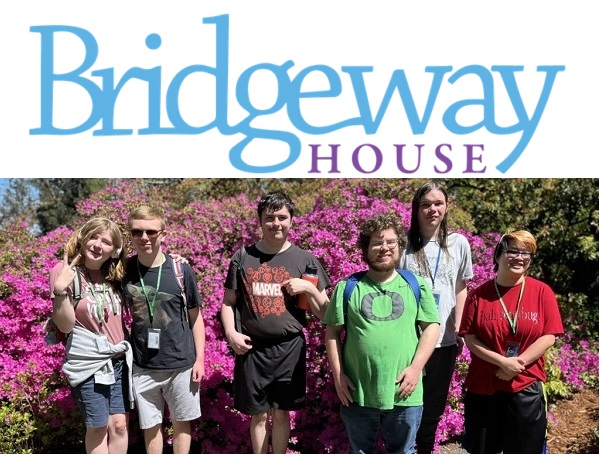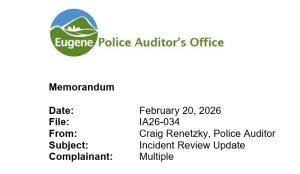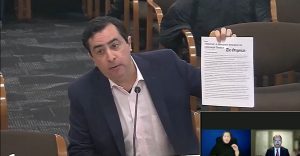Stories of Bridgeway House: Akiko Kato
4 min read
Presenter: June 18 is Autistic Pride Day. We’re celebrating by visiting Bridgeway House, the local school that serves our autism community. Here’s the principal at the 15th Avenue site, Akiko Kato:
Akiko Kato (Principal): It takes a long time for them to actually learn or see the progress themselves. But now they themselves know that they make such progress and they feel they have friends and they learned a lot. And then they even want to tell the younger students how much they learned. And at their age, they need to do a lot of things. They can tell that to the other younger students, which is great.
[00:00:38] But at first, the first few years, it’s very hard, so it takes a long time. We often talk about a seven years until actually one student could say hi to me at the door, like when we do ‘Good morning,’ and some student every single day, but it takes them seven years sometimes. And when it takes so long, you feel discouraged sometimes.
[00:01:05] And it’s all right to take time at Bridgeway House, we work together with the students and the families, and the families and the students allow us, or they want to take time—they need to take time—to progress. And that’s a great thing about Bridgeway House. It’s all right to take time and then they build a confidence.
[00:01:29] Also a positive thing, (Anthony) saying he knows how much he learned here. And then younger students need to do this and they’re at their age and so on. It’s great to hear that. So it’s such a small thing and you see the smile in that student. You see the kind of a shine in their eyes with the confidence.
[00:01:46] And that’s a small moment, but that’s the most rewarding part working here every day.
[00:01:52] A lot of school districts depend on us, but still there are some areas or some schools or some people but don’t really know about us either. So it’s been a kind of quite a journey recently to try to make ourselves known a bit more, more than ever, I think.
[00:02:15] Patricia has been making efforts all the time, but, and it’s great to see a lot more people express that they want to help.
[00:02:25] We would like to keep the environments small for the students. Patricia says we are filled and we are closed for the new openings. But then, right after Patricia says it every year, we got one month or two months, and then a lot of needs, requests from the school districts, and parents’ requests. So we are over.
[00:02:44] We really want to keep the right environment small for the students because we can keep the consistency more easily if we do that. But when there’s a need, we would like to serve and support. So, that’s how we are growing.
We’ve grown so much, I think, this year, even—one new school district and they’re sending more students. So I think almost every year we have a new school district.
[00:03:15] It’s true in any education and especially in special education, teachers are spending their own money to provide the activities and the experience and the learning opportunities to the students. And I think it’s true of any education, special education. But we are really suffering.
[00:03:39] If we have more money, and then if we keep our doors open, then we can give more, provide more opportunities for the students.
[00:03:51] If we don’t have money, we have to stay in the classroom using a very limited resource, and then we still do it, but going out to the community is a big goal, especially in this location.
[00:04:07] There is a big garden for the students to go, and then they do accept a lot of students with the needs. So they take them there or we had one classroom has University Park as adopted programs and do the landscaping there. And visiting the library, visit the Hult Center the other day for the music concert.
[00:04:32] And then, yeah, they go on a hike, Ridgeline hiking course; they visit the parks, Charnel Mulligan Park and Raptor Center is a popular place. And then Pumpkin Patch visits that, we would like to do it every year or more often, but again, money.
[00:04:58] Parents are really helping us. But we would like a little bit more. Even the curriculum—some of the students try to go to college too, and then they would like to practice taking tests and so on. And then we need to buy curriculum to practice taking tests and then look at the questions and how we are going to take the test.
And even that kind of curriculum on top of the core academic skill curriculum, and then special education, special skill, daily living skill curriculum. All these things we need, we need to budget to use those curriculums.
[00:05:42] So that area also, we wouldn’t mind having more help.
[00:05:47] Presenter: We’ve been visiting with the Bridgeway House family and Principal Akiko Kato at the school’s 15th Avenue location in Eugene. You can donate at BridgewayHouse.org, or by calling area code (541) 345-0805.
During summer break, calls to Bridgeway House will be automatically transferred to school admin team cell phones. For faster service, call the cell phones directly: (541) 743-5159 and (505) 930-6910.





